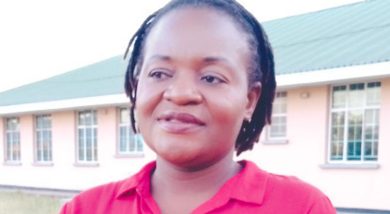MPs abuse new CDF bursary fund
Just like they abused Constituency Development Fund (CDF), some members of Parliament (MPs) are misusing and delaying implementation of the newly-introduced CDF school bursary scheme, official records indicate.
Bursary reports in the Ministry of Local Government and Rural Development that we analysed from eight randomnly selected districts show that some legislators flout procedures meant to ensure transparency and accountability, and that only deserving students benefit from the scheme.

At least K3 million, or 10 percent of the K30 million allocated to each of the 193 constituencies as CDF, is supposed to fund the programme using guidelines adopted from the defunct National Aids Commission (NAC) funded bursary scheme which assisted such students.
The fund, which can fund up to 50 students in a constituency, was introduced in the 2019/2020 National Budget meant to assist needy students access education.
We analysed bursary reports from Karonga and Chitipa in the North; Ntchisi, Dowa and Lilongwe in the Centre; and Mwanza, Phalombe and Zomba in the South.
We found out that offices of the district social welfare (DSWO) and the district education manager (DEM), and community structures are the ones supposed to identify beneficiaries while the role of MPs is to sign payment cheques to the respective schools. But some legislators are single-handedly identifying the beneficiaries and imposing them on the councils.
In Mwanza Central Constituency, for example, out of 39 students that the DSWO identified as beneficiaries, only two were finally considered while the rest were replaced with other names, allegedly identified by the MP, according to a council staff who did not want to be named.
But, in a telephone interview, MP for the area Nicholas Dausi, who is also Minister of Homeland Security, disputed claims that he imposed names of potential beneficiaries, saying his representatives and staff from DSWO jointly identified the needy students.
We also established that in the constituency
benefited from the scheme despite the availability of funds and only one school term.no single student has so far
Dausi, a ruling Democratic Progressive Party (DPP) MP, confirmed that no single student has benefitted from the scheme. He explained that he was still scrutinising the list to “ensure that only genuine needy students benefit”.
“Trust me, the money is still intact. The council will write cheques directly to the schools when they open,” he said, adding that brilliant students, who were selected to national secondary schools, will be prioritised.
In Dowa, some MPs are alleged to be refusing to endorse the processing of cheques for school fees, a development that has led some needy students to be chased from schools.
According to a district council official, speaking on condition of anonymity, said the council amended guidelines for identifying beneficiaries and gave powers to MPs to endorse the final list of beneficiaries.
The new arrangement, according to the council employee, is making lawmakers influence officers at the council to replace names of approved beneficiaries with their own.
In an interview, opposition Malawi Congress Party (MCP) MP for Dowa West Abel Kayembe confirmed delays in processing cheques and that some students were chased from school.
Kayembe, however, blamed the delay in processing payment on the technical committee at the council. But he said the first payment for 50 students was made last month.
But the official at the council claimed payment was delayed because MPs and council staff could not agree on the final list of beneficiaries.
Council officers we interviewed in Chitipa and Karonga stressed the need for government to popularise the new funding model, arguing that some legislators are being secretive about the existence of the scheme, and consequently lie to their constituents that they are paying the fees from their own pockets.
Said one officer from Karonga: “The MPs are quiet about the scheme and not many people in the communities are aware of availability of these funds.
“The district social welfare officer is also not involved in identifying and vetting the beneficiaries, but the council is paying school fees,” he said.
Chitipa East legislator Kezzie Msukwa (MCP) said, in an interview, that the same problem of lack of awareness was causing speculation and finger-pointing about the scheme.
Civil Society Education Coalition (Csec) executive director Benedicto Kondowe said his organisation also got similar disagreements over the funds.observations about abuse and
He said a study carried out by Csec in Mzimba, Salima, Lilongwe and Chikwawa found that some MPs who are “powerful and feared” just bring a list of supposedly needy students to councils and demand payments.
Kondowe stressed that unless guidelines are reviewed, taxpayers should not continue supporting initiatives like the CDF bursary scheme which do not promote transparency and accountability.
“The whole scheme is being politicised. We have a scheme that defeats the whole purpose it was set up for. There are very few districts where things are working but in general, there are a lot of gaps that we need to deal with,” said Kondowe.





